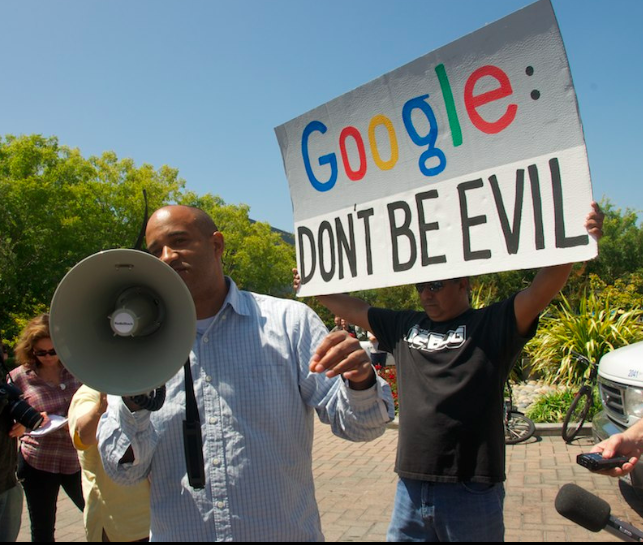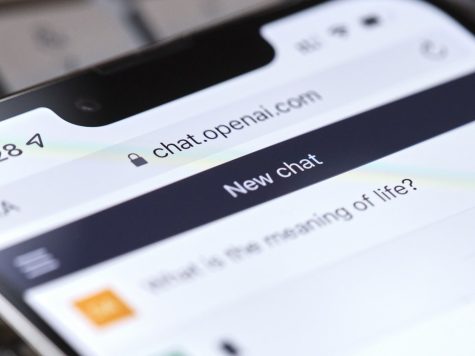Net Neutrality
Imagine that if when television was first created, anyone could make a station. Imagine that any person with a camcorder and a dream could develop an entire programming schedule and that everyone could access. Sure, the channel list would get long (impossibly, infinitely long) but as long as you had the correct channel number, you could tune in to any station you wanted. The cable company wasn’t charging any extra to get access to these small, independent channels, and it didn’t cost anything for you, as the creator, to make them.
Now imagine that the cable companies didn’t like that.
Imagine that I put out a station called Comcast Sucks. It hosted a series of television shows of all the nasty and horrible things that Comcast has done to people. Soon, Comcast found a way so that all of the people who watched my channel using Comcast, couldn’t see it anymore. When they tuned to my channel, they got a blank screen.
Now, imagine that bigger channels, channels like ABC, NBC and CBS, begin to pay these cable companies so they have better audio and video. They look better, more people come to those stations, and their advertising gets more money. And the cable company begins to demand all stations pay a little bit of money so they can stay on the air. So that when you tune in to their channel, you don’t just see a blank screen.
Let’s make something clear: it isn’t costing these cable companies anything to give us access to all of the stations. But they are a company providing a service and they can do that any way they wish to. So they require that you pay them money so you can show up on the TV.
Now, to the audience, they begin to offer different levels. If you pay 5 bucks a month, you get the Big Three channels (ABC, NBC, CBS). If you pay 10, you get those three plus all the news and sports channels. Fifteen, and you get a little bit more. And all the way up at $50, you get all the channels: yes, maybe even Comcast Sucks.
But most of them aren’t there anymore. The independent stations couldn’t afford to pay all the cable companies to stay on the air. So now you’ve got a new problem. You want to watch your buddy Billy’s cooking show, but he can only afford to pay Verizon, and you have Comcast. So if you want to watch his stuff, you have to change over to Verizon. But your other friend, Melony, has a fishing show only on Comcast. And you want to watch both. So now you have to subscribe to both in order to get both.
Sound expensive and complicated? Congratulations. You’ve entered the wonderful world of net neutrality.
Net neutrality is basically the idea that no website, and no person, should have to pay a specific internet service provider (ISP) to have a difference in service. In other words, Google shouldn’t be able to pay all of the ISPs in the US so that it is easier for people to access their website. The basis for net neutrality is that the internet is a communication tool (similar to the telephone) not an entertainment tool (like the television). Sure, all telephone companies charge different rates for use of the telephone but it doesn’t result in better or worse service. If you only pay five bucks a month at Verizon, you don’t have a fuzzier connection. You have the same connection as the person who pays $10 a month at AT&T.
Net neutrality advocates state that cable companies should not be able to regulate the internet. Certainly, they can change the speed of your access (similar to telephones; you can pay one price for only local telephone calls, and a higher price for long distance and local calls) but you cannot charge for access. If this is true, if the internet is a communication technology rather than an entertainment resource, then the Federal Communication Commission (FCC) should be able to regulate the internet, just like they do with phones.
However, on January 14, 2014 the DC Court of Appeals stated ISPs can make deals with companies like Google, Amazon or Netflix so that their websites can load faster. And, in fact, Netflix has already done this. The case, Verizon vs. FCC, basically ruled that the FCC can’t regulate ISPs. This means that ISPs can start developing a “tiered web”, where those in the top tier can quickly and freely navigate the web and their sites will load faster (as long as they pay their $49.95 a month) and those in the bottom tier can barely access Google.
The death of net neutrality means not only the death of a “free internet” but it means the death of all our assumptions surrounding the internet. We will no longer be able to go to any link a friend sends us, use websites like Stumbleupon, or just throw together a website in our spare time. Independent start ups would never be able to reach the heights of companies like Google, Facebook or Amazon. Non-corporate individuality on the internet will die and our children will look at the net in an entirely different way from us.
But there is some hope.
The Obama administration has said that they will always support internet freedom. Comcast must maintain internet openness, for its customers, at least until 2018. And there is a new bill in congress to protect net neutrality from the corporations that wish to destroy it. Net neutrality is not dead. For now, it is merely sleeping. And only time will tell whether our children will see the same internet we know and love.
Zack Hardy can be reached at [email protected]





